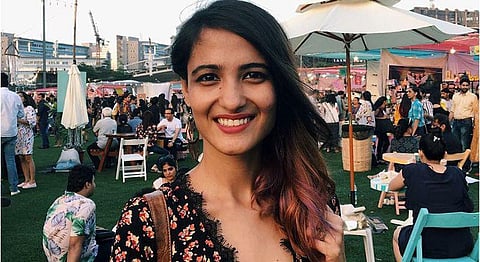
- HOMEGROWN WORLD
- #HGCREATORS
- #HGEXPLORE
- #HGVOICES
- #HGSHOP
- CAREERS
- ABOUT US
- CONTACT US

Saher Naqvi reacted to the news of her being admitted into Jamia Millia Islamia’s (JMI) Master’s program like any other woman who was starting a new phase of her life at the nation’s capital would: excited and looking forward to bigger and better things. But, she would soon learn that her experience living in New Delhi wouldn’t be like any other woman’s because she is Muslim.
Graduate from St. Xavier’s College (Autonomous), Saher thought that she had done the hard part- securing herself a place at one of the world’s most prestigious universities. Earlier this year, JMI had nabbed a coveted place on the Quacquarelli Symonds’ (QS) World University Rankings list, only one of 20 Indian institutions to do so, making Saher’s admission into JMI’s master’s program a commendable feat.
Once Saher, a Bombay resident, decided to scout for apartments near JMI, she would learn two things: first, that house hunting is difficult and second, that it is an even more frustrating experience when the tenant is Muslim. “On the first day, a broker was showing me places and he called a landlord. Then, the broker said that the place he wanted to show me is nice but he can’t show me now because the landlord doesn’t rent to Muslims,” Saher said aghast.
Hoping for more positive interactions with landlords and that this incident was an anomaly, she ignored it and soldiered on. But, as the week progressed, she found similar instances of discrimination. In a passionate tone seeping with hurt, Saher told me about how landlord after landlord rejected her tenancy because of her religion. “One lady didn’t even want to take us inside to show us the place... She didn’t even look at me, she directly told the broker, ‘We don’t rent to their kind,’” Saher recalled.
This treatment stung, like an angry wasp or like Saher said, a slap on the face. She told me that she internalised the discrimination and felt the need to express regret for wasting the landlords’ time. “It’s been shocking and appalling. It just makes you feel so small because you find yourself apologising for your own religion,” Saher admitted.
She told me about how she knows she isn’t the only victim of such bias because she interacted with Brahmin landlords who refuse to sublet to lower castes and Muslims. Listening to Saher narrate her experience, I was struck at how thoughtful and perceptive she is. She knew that her parents would worry about her wellbeing in a city far from Bombay, so she kept the bad news to herself and spent her days coming home exhausted, not wanting to discuss it. She told me that although she understood the landlords’ conditioning, there was no correct way to react to the hurtful prejudice, especially when one’s mental state is layered with homesickness, like hers was.
“I was upset and angry and didn’t know what to do so I vented on Facebook. I got so many responses! Friends reached out, shared their own stories, and put me in touch with people who could help me,” she said. Soon, relief came in the form of an elderly lady who was only concerned about Saher’s ability to pay rent as the deciding factor for her tenancy, not her religion or caste.
“After all these experiences, I was scared that even this landlady would say no. So, I asked her myself if she rents to Muslims because I didn’t want to end up liking the flat and get disappointed later. But, she didn’t care about religion,” Saher said with a pleasantly surprised smile, one I couldn’t see but could hear in her voice.
Saher turns 25 the day after tomorrow in a house she can call her own for now. Although Saher’s story has a happy ending, I can’t help but wonder about the scores of other Sahers who experience similar discrimination when hunting for a basic need, shelter, a place to lay your head after a long day. Communal bias is sewed into the fabric of Indian society well before British colonialism.
But, this coming independence day, when in 1947 a South Asian subcontinent was fractured into Pakistan and India, we must introspect and ask ourselves why our mindsets have remained stagnant for 71 years, why we still segregate our homes on the basis of caste and religion, and why, when we meet strangers, our first instinct is to find out how we are different before we celebrate how we are alike.
Feature image by: Saher Naqvi
If you enjoyed reading this, we suggest reading:
